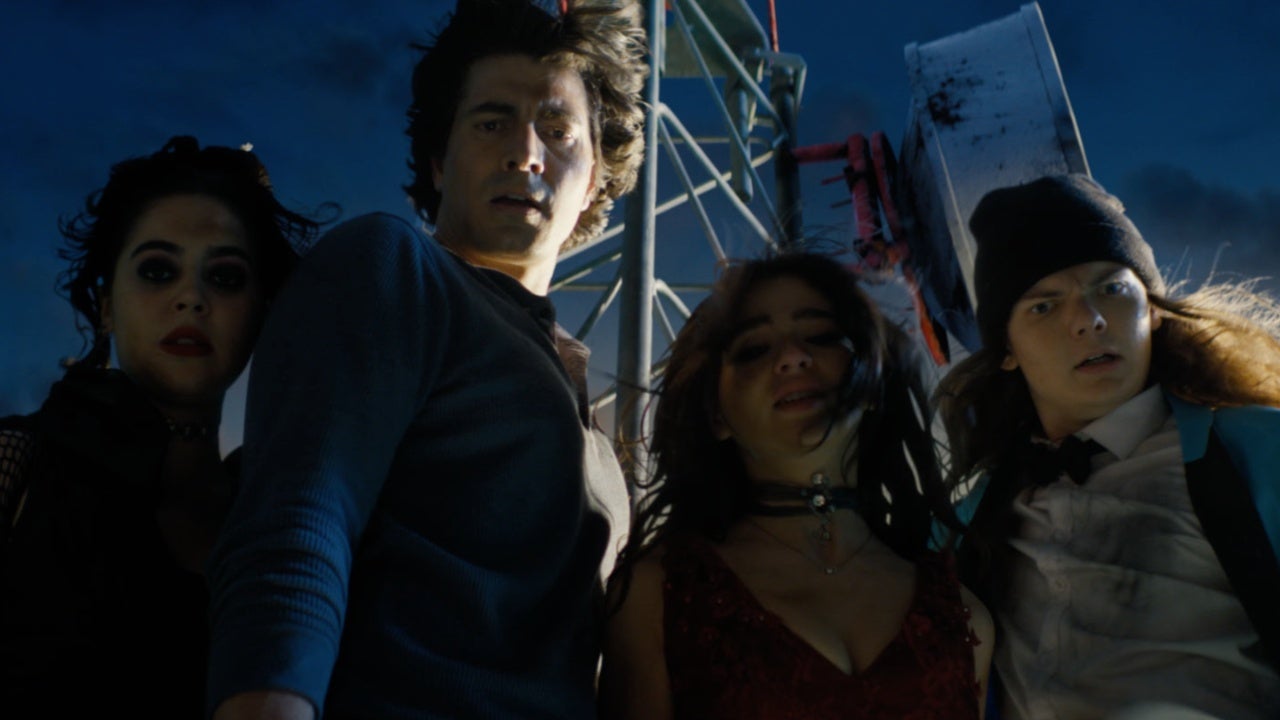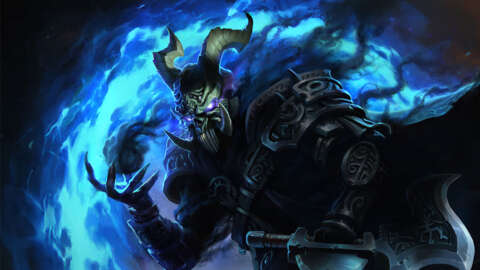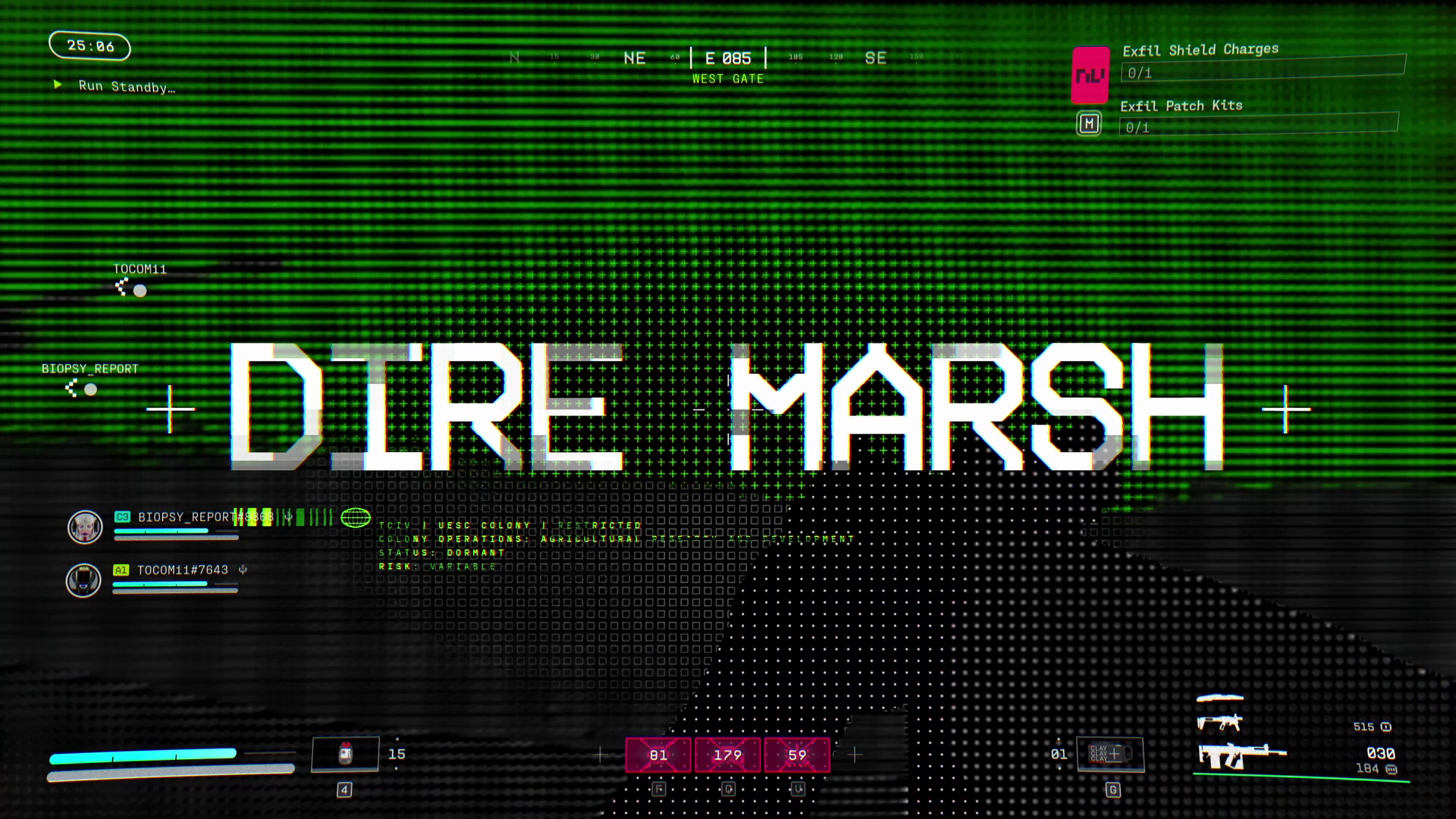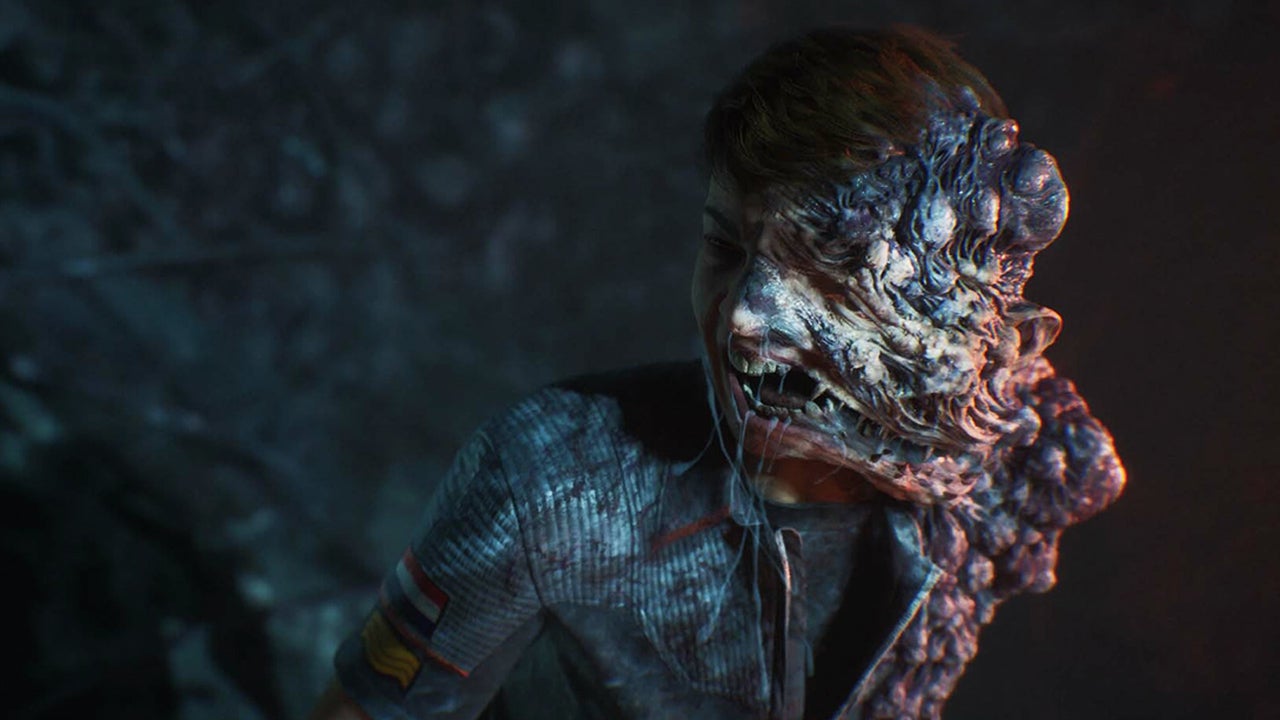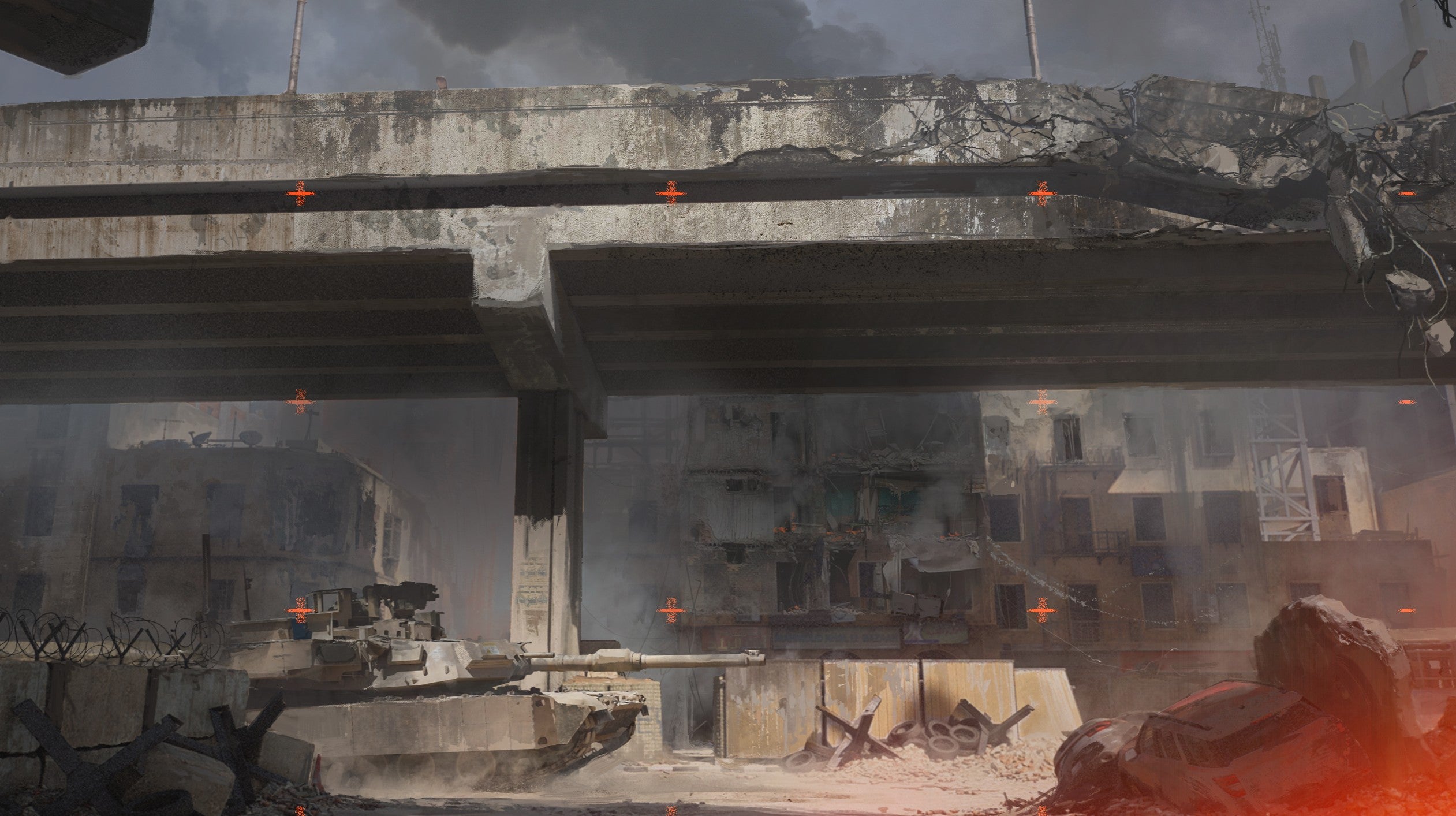
If there is one moment of real connection in director and co-writer Joseph Khan’s frenzied horror-comedy Ick, it occurs less than three minutes before the ending credits begin to roll. After managing to escape a lengthy tentacle monster attack during what ends up being a rather deadly prom, a surviving teen asks, “Are we done now, or…?” After nearly an hour and a half of being whisked from half-baked scene to half-baked scene, watching absolute bedlam practically materialize out of thin air, and struggling to recall any details from prior scenes that could help me understand how we arrived to certain seemingly major developments, I found myself asking the very same thing.
Early peeks at this nostalgia-fueled alien thriller promised commentary on the dangers of mass apathy shrouded in big laughs and pulpy action, all to the tune of early 2000s radio royalty like All-American Rejects and Wheatus. Instead, Ick skips past any sharp satire with its almost punishing pace and a broken jukebox approach to sentimentality with needledrops so on-the-nose that they’re rendered ineffective. To make matters worse, the actual storytelling isn’t comprehensive enough (nor are the jokes funny enough) to save any of it with memorable characters or any sort of payoff at the end.
Ick follows (or, more accurately, attempts to keep up with) Hank Wallace (Brandon Routh) a former high school football star who endures a rather lengthy rough patch between his teen years and middle-aged adulthood, when he eventually becomes a science teacher at his old high school. This rough patch, I must add, is fully documented in a whirlwind montage that crams far too much backstory in the almost eight minutes before the title card even appears. The wall-to-wall, whooshing quick cuts feel visually reminiscent of Shaun of the Dead or Scott Pilgrim Vs. The World (where Routh also appeared in a funny cameo). But unlike those instances, where speedy cuts were only sparsely and strategically used as scene transitions, this panicky pacing carries on throughout the entirety of Ick.
It’s consistently overwhelming, downright sloppy in places, and there doesn’t appear to be a good enough reason for the breakneck tempo in the first place: it doesn’t effectively enhance the story’s comedic or frightening qualities. It does, however, add to the confusion by trying to pack more into 90 minutes than that timeframe can accommodate, making the whole ordeal feel much longer than it actually is.
Ick’s bewildering temperament is made more aggravating by the story’s near-refusal to dig below the surface of anything, even when the dormant creature known as the Ick inexplicably reaches a critical mass and begins attacking the town. There isn’t any solid explanation as to where the Ick came from, how this small town has managed to coexist with it for decades (while it was dormant, its slimy tendrils were still visibly everywhere), or why it suddenly needs to attack at all. Perhaps it’s just a visual ode to iconic horror, or commentary on how time and complacency has desensitized the general public amid serious danger, but failing to metaphorically tie this tentacled blob to any societal ill feels like a missed opportunity.
The same lack of exploration also applies to the town’s occupants, who are nothing more than thinly rendered high school archetypes. Routh, for his part, seems to loosen up halfway through and lean into the foolishness when he’s not attempting to play the part earnestly, but those scenes don’t last long enough to allow his or anyone else’s performance (such as the criminally underwritten Mena Suvari as Hank’s high school girlfriend) room to breathe. Ick also doesn’t appear to press all that hard against the well-worn cliches that Hank represents beyond the fallen hometown hero. Early scenes touch on the hypersexual nature of ‘90s-era high school thrillers and the desperation to cling to former glory, but not enough to make any hearty observations or even crank out a few cheeky digs.
Ick’s younger cast, led by Malina Pauli Weissman as the Gen Z voice of reason, Grace, largely exist to lampoon #wokeness. Some of it works, like in the case of Harrison Cone’s Dylan, who weaponizes his feigned social awareness to get away with being a creep and a bully. Beyond that, the angle doesn’t yield any creative jokes or insights that might’ve at least made the pokes at basic empathy worth it. Even Grace’s supposed twist of a storyline feels like an haphazardly inserted afterthought amongst the mayhem that goes nowhere.
As the Ick ramps up in presence, the action mainly remains one-note: Inky roots creep up the bodies of victims, seemingly siphons their life force, then fully possess their new host, lather, rinse, repeat. To its credit, Ick’s special effects are mostly serviceable, even if the action they support is largely forgettable. Sprawling and invasive, the monster does look fairly menacing, even in its dormant state. There are definitely scenes when the attacks reach peak aggression and the quality begins to look strained, but as a nod to the classic creature features of yesteryear (which Kahn clearly harbors an appreciation for) it actually fits.
Still, Ick’s big, climactic moments aren't particularly memorable and we aren’t given a reason or chance to care enough about the characters to feel anything about their fate, positive or negative. At most, the mounting danger results in a refreshing cameo from Debra Wilson, who lands the movie’s best wisecracks as an overextended and ultimately unhelpful military leader. She also delivers on one of the more overt themes: the ineffectiveness of government during times of real crisis. The commentary’s a little light, but it is there, for what it’s worth.
Perhaps the most disappointing aspect of Ick is its failure to really nail the nostalgia beyond a somewhat predictable soundtrack, a misstep that really only matters when nostalgia is a central part of the story. Film and TV are rife with examples of well-placed music – Netflix’s Beef, for instance, is a buffet of expertly deployed early 2000s bops that bring heft or energy to its more emotional moments. Ick, on the other hand, opts for the spray n' pray method of musical direction, throwing the era’s most obvious pop-rock tunes into a blender without much thought other than to say, “Hey, remember Hoobastank?” The choices aren’t terribly inspired or all that exciting, which is especially baffling considering Kahn’s extremely diverse videography as an award-winning music video director. It’s a soundtrack you’ve heard time and time again, and putting it in this context doesn’t merit a revisit.
So much of this would be forgivable – the one-note characters, the exaggerated visual cues, even the myopic view of the era’s music – if Ick actually took the time to say anything meaningful. But if Kahn has any real perspective on the state of our society or the era of film this is meant to reflect, it’s almost entirely overshadowed by chaotic editing and a startling lack of cohesion.
